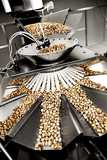Al Rifai nutisal / Helsingborg
Tough nut to crack
Although the European nut market was worth over €8bn in 2007, consumption there is peanuts compared to the Middle East. But Al Rifai, the Lebanese ‘Rolls-Royce of nut companies’, is expanding into Europe’s underdeveloped market from a new Swedish HQ.
In an office in Helsingborg, the Swedish coastal town 60 km north of Malmö, Moussa Al Rifai Jr is experiencing some discomfort. “This is like… bird food,” he boggles, as an offending packet of cashew and peanut mix – a “between meal snack” from Swedish producer OLW – spills out over his desk. “If you served something like this in our culture, you’d have serious problems.” He prods a cashew. “We are used to a cashew that is approximately 2cm in size. How big is this?” Prod. “They are giving you a cashew which is half a centimetre?”
If there’s one thing Al Rifai Jr knows, it’s his nuts. His father, Mohamed Al Rifai, is CEO of Al Rifai, the Lebanese company that controls 55 per cent of that country’s €30m annual nut trade. Al Rifai sells almonds, macadamias, pistachios, pecans, peanuts and plenty more besides. They are salted, smoked and spiced into some 52 varieties, available in Al Rifai’s stand-alone stores, in supermarket “Express Units”, at counters in Beirut’s International Airport and in nitrogen-flushed 150g bags everywhere else.
It was Mohamed’s father, Hajj Moussa Al Rifai, who founded the company, opening their first roastery in downtown Beirut in 1948. Sixty years later, Al Rifai is a household name in the Middle East; synonymous with quality, flavour and – you’ll have guessed – size, in a culture that prizes nuts like no other. “We are sociable people. If you have people coming over, or you’re with your family, or even if you’re by yourself watching TV; you need nuts,” saysAl Rifai Jr, a well-combed, likeable 27-year-old in Gucci slip-ons. “In nightclubs and in luxury hotels you would have a Scotch and nuts. For many they are the inseparable duo.”
Now, partly because Al Rifai has 80 to 90 per cent market penetration back home and partly because political unrest has led to Lebanese businesses looking West, the company is having a crack at Europe. Having determined to begin its European assault in Sweden (Al Rifai Jr: “The market here is undeveloped. I read on the internet that 40 per cent of Swedes have never tasted a cashew”), it has spent 10 months and €8m converting a pharmaceutical factory into a 12,000 sq m complex capable of handling all aspects of production; from sourcing nuts to delivering them to retail in shiny vacuum-packed bags. The nuts have been rebranded as Nutisal for the West.
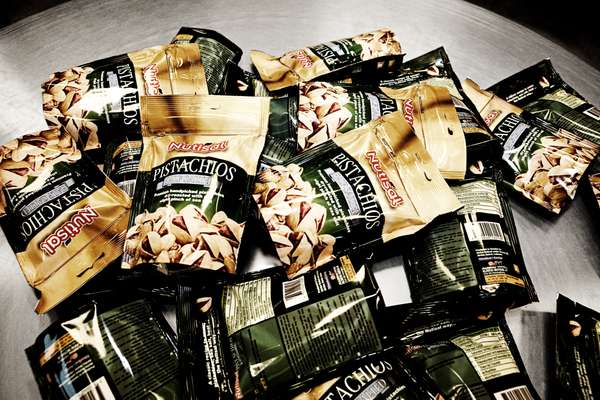
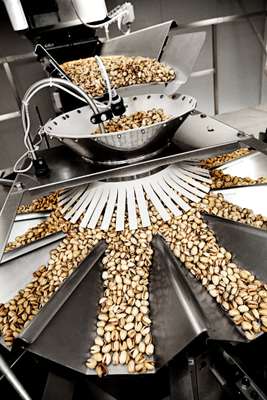
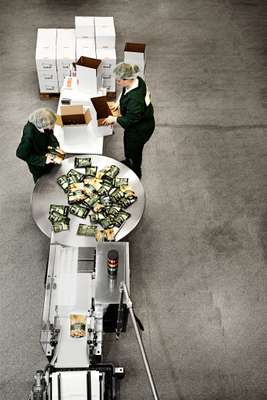
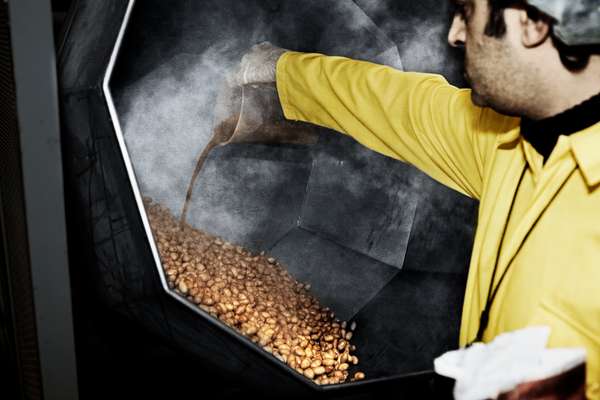
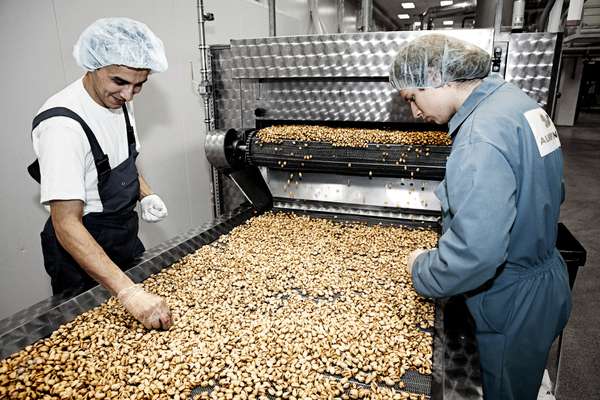
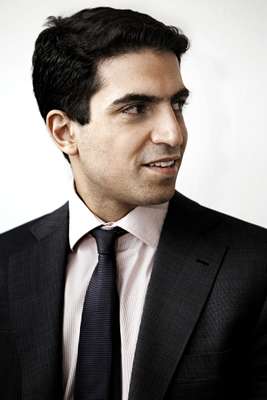
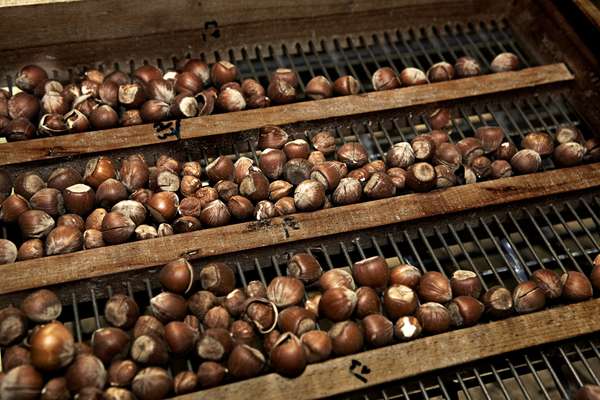
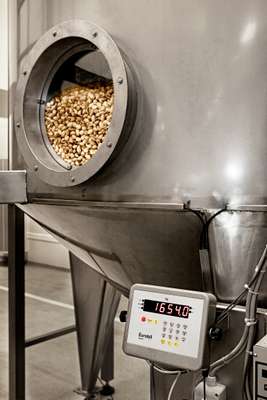
Helsingborg’s port, proximity to the E20 motorway and southern Sweden’s relatively central location in Europe are other factors. “Our products can be in Paris within 48 hours,” notes Al Rifai Jr. They’re likely to give Europeans something to chew over. Our relationship with nuts is perhaps best typified by foil packets of over-fried, over-salted peanuts sold behind bars and wolfed down with pints of lager. When Australian brand Nobby’s launched in the UK, its marketing campaign consisted of Noddy Holder, the over-excitable singer from 1970s glam rock band Slade, entreating everyone to “nibble Nobby’s nuts”.
It’s a positioning exercise unlikely to be repeated by Nutisal. “We are the Rolls-Royce of nuts,” says Al Rifai Jr, whose products have won six international food and beverage awards in five years. “Most people aren’t even aware that there are five grades of cashew. In Europe what is being sold is the lowest.” Just 2 per cent of Al Rifai Nutisal’s output is fried, they contain zero chemicals or artificial flavourings and the company is at pains to underline its products’ health benefits. One of its first European lines will be the Enjoy Life range.
Al Rifai Jr took MONOCLE on a comprehensive four-hour tour of his new factory, capable of generating 7,400 tonnes of nuts a year when working a 40-hour week, even though it’s only been operational for barely a month and the factory is currently at 30 per cent production. With its state-of-the-art machinery handling cleaning, drying, roasting and packaging (mechanisation reducing the human workforce to a scant few), endless silver corridors and pressure-controlled airlock doors, the complex brings to mind Dr No’s underground lair – you half-expect to find Honey Ryder tied-up in a store room – but nevertheless it is certainly impressive. Indeed, Al Rifai Jr has plans to offer tours to the public.
“Nuts have been in my blood,” he explains. His father would take him, aged six, round the Lebanese factory for a treat. At school he was known as “the nut guy”. Aged 16 he joined the company as janitor – “I started from grade zero. No favours” – and worked his way up. At college he attained four degrees in marketing and business. Dad, meanwhile, spent the 1980s modernising the brand to even greater success via a string of award-winning TV commercials and introducing new varieties such as smoked almonds, cashews with cheese and kri kri (coated peanuts).
Even the Lebanese Civil War did not derail the company: “During the war we scaled back to three stores; afterwards we immediately shot up to 35.” By 2004 Al Rifai had 160 stores across the Middle East, plus exports. Today Al Rifai Jr downplays any impact the war between Israel and Hezbollah has had on business. “I’ll be honest, it is very hectic over there right now – but somehow the economy has managed to keep itself up. Sadly, people have got used to it. People are spending as if the country is non-conflict.”
For now, he’s firmly focused on Europe. Given the recent “premiumisation” of everything from coffee to bottled mineral waters, he would seem to be in the right place at the right time. “My dream is to educate consumers to the benefits of nuts as part of a healthy diet,” he says, “and for us to see our brand as top-of-the-line. Just as when you think of quality chocolate, you think of Lindt.” If anyone can get us shelling out for nuts, it’s him.
The nut trade
Iran remains the world’s largest global exporter of nuts. After oil and carpets, pistachios are the country’s biggest source of foreign currency, bringing in more than €400m a year. At least 350,000 Iranians earn their living from the nut, the majority located in the country’s southeast. More than two-thirds of Iran’s pistachio exports come to Europe, while America has had a more troubled relationship: President Clinton’s 1995 trade embargo banned Iranian pistachios from being sold in the US. Last November, US officials urged Israel to crack down on Iranian pistachio imports reaching their country via Turkey, despite a ban on Iranian imports.
Pistachios
Pistachios have been held in high regard in the Middle East for thousands of years, originally cultivated in the Holy Lands for their pale green colour and the sweet flavour they bring to dishes. Folklore suggests lovers met beneath pistachio trees to hear the nuts crack open in the moonlight and bring them good fortune. The Queen of Sheba decreed them a royal treat, but, flourishing in hot climates, they quickly spread to the Mediterranean and to the common man.
The nut is also a dyeing agent and a folk remedy for ailments ranging from toothache to liver sclerosis. A rich source of potassium, fibre and B-vitamins – medical evidence states a diet rich in nuts can enhance life expectancy by two or three years – the pistachio remains central to Middle Eastern hospitality.

